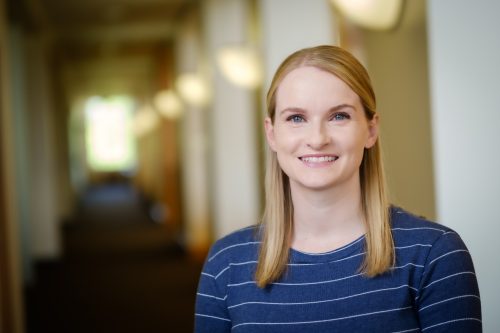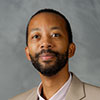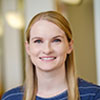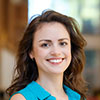
As National Mentoring Month draws to an end, we are happy to feature Amanda Foster Kaufman, ZSR’s Learning and Instructional Services Librarian. Amanda elaborately shares how she has collaborated with co-authors to bridge two different Association of College & Research Libraries (ACRL) conference paper presentations into peer-reviewed articles. One was 2017-2020. The other is currently in progress.
How did you become involved in both of these endeavors/commitments?
Over the past seven years, I’ve been consistently writing and presenting with a core group of colleagues, all of whom live outside North Carolina. We met over a decade ago when we all worked at the same library. Back in 2016, we pitched a panel for ACRL around the idea of teaching credit courses. We weren’t selected (…bummer) but that’s also totally normal for ACRL – so normal, it’s basically its own Twitter meme. So, we were surprised and delighted when ACRL invited us to do a webcast on our rejected topic. It was a good lesson that just because one conference doesn’t accept my proposal (or one editor turns down my inquiry) that doesn’t mean my idea sucks, it just means that I may need to try another venue, or finetune my idea.
After the webcast was over, we realized we had a pretty good time working together and wanted to do so again. We started brainstorming ideas for the next ACRL, and having each left a job at one point or another, we half-jokingly settled on librarian turnover. That time around, we decided against proposing a panel, as we felt these had higher rejection rates than contributed papers. The downside is that contributed papers are a bit more work. The upside is that they end up in the conference proceedings, which for us has led to further publication opportunities. We’ve since had good luck with our contributed paper proposals – we proposed and were accepted for another one coming up here in March, and we plan to follow the same publication pattern.
Could you share what you have learned most from your research on these writing projects and as a member of this committee?
There’s a couple things I want to talk about in response to this question. The first is how we’ve stretched one research study into multiple publications and/or presentations. Our research topics tend to involve surveys that use both scales and open-ended questions. Our strategy to get multiple publications is to report just the descriptive statistics and some select personal narratives from the open-ended responses in the contributed paper. Then, we report on our inferential statistics and fully-coded open-ended responses in the peer-reviewed article. My sense is that quite a few people read the ACRL proceedings, as we’ve been approached about our research several times over the years. One such inquiry led us to authoring a third publication about our findings, this time a book chapter. I mentioned above that we’ve repeated this process for the upcoming 2023 ACRL Conference. We’ve learned a lot from our last go-round, especially around saving time. This time we chose to use scales that were already created, rather than making our own. Creating your own survey questions takes a lot of time (especially with multiple co-authors), and we’ve shaved months off our process by using other people’s scales.
The second is how to co-author well and in a way that maintains relationships and ensures people want to co-author with you again. I really enjoy co-authoring publications and presentations – it’s way more fun than going it alone. But it does involve compromise and letting go of the small stuff. In my co-authoring groups, I tend to follow the writing model of “thinking together” but “writing apart.” This means that when we have meetings, we talk about the big stuff. What are our research questions? What questions should go on our survey? How should we code these responses? How should our main arguments be structured? But then we “divide and conquer” when writing the actual content. Of course that means not everything will be written the way I would write it myself… and that’s probably a good thing. That said, it’s always helpful to have someone who keeps the group moving along to meet deadlines in order for the group to be successful. And it’s also totally normal for folks to take turns stepping up to take leadership roles, and to stepping back when their life or professional needs change. I’ve definitely learned to be honest with myself and my co-authors about my capacity at different times.
Has previous library mentorship prepared you for either of these experiences? How so?
First, yes, absolutely I recommend mentoring. I’ve had some really wonderful mentoring experiences at ZSR Library – some were formal mentors, and others were just colleagues and/or friends who stepped into temporary mentoring roles. Many have helped me adjust to the culture at WFU and ZSR, offered great professional and personal advice, and cheered me on as I wrote my first solo book chapter several years ago.
As far as advice goes, I’m going to talk to my fellow recovering (or maybe not recovering) Type-A overachievers for a minute. I think it’s important to acknowledge that no one taught any of us how to do this (gestures widely). There have been moments when I have taken this as a personal failure. It’s been helpful to remind myself that most library schools don’t prepare their future academic librarians for high-quality, high-volume scholarly output and that taking that on as a personal continuing education project is hardly reasonable, easy, or even readily available. Do what you can, but don’t beat yourself up.
Speaking of normal things not being personal failures, it’s (unfortunately) totally normal to not have access to a mentor who has experience and expertise in your desired research area. And even if you do, they may have time and resource constraints that don’t allow them to guide you through your early career publications or presentations. Further, for reasons that remain a mystery to me, the onus is often on the newer librarian to find a more experienced mentor willing to guide them through the scholarly process. And isn’t being a new librarian hard enough without being told you now need to “find” your own personal Obi-Wan, too.
So, here’s my advice. Find your Han, Leia, Chewbacca, R2, and C3PO instead. My former supervisor, Amy Fyn, wrote an article over a decade ago on peer mentoring, and it’s one that I’ve referred to (both for myself and others) again and again as a librarian. It’s about the importance of having peer mentors – people you can share tips with about your experiences with this conference or that conference, or this journal or that journal. It’s about looking around you and developing other relationships that maybe don’t look like traditional mentorship, but are still totally mentorship. Essentially, be a mentor to your colleagues and let them mentor you. I wouldn’t have the CV I have today without colleagues like Kyle, Joy, Hu, Meghan, Elizabeth, Molly, and others “peer” mentoring me along the way.




6 Comments on ‘What We’re Working On: Amanda Foster Kaufman’
This is a terrific account of your progress from new to seasoned librarian looking for a venue for your scholarship. I particularly enjoyed your description of the process-which is as you say not clear or taught in library school. Thank you!
Thank you for this Amanda – bookmarked this to come back to as you have some great tips and reminders to share!
Amanda, thank you for always sharing your wisdom and experience! And remind me to show you the Star Wars sweatshirt I recently bought 😉
Thank you for sharing, Amanda. This is both interesting and useful! Great post!
This is awesome advice! (and now I’ve got a new twitter meme to follow!)
Really appreciate this advice and encouragement, Amanda, thank you!